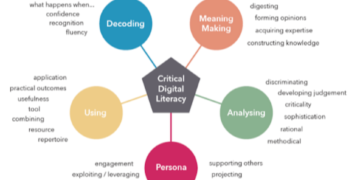Zepbound, a Weekly Injection Delivered Via Pen
Zepbound, a weekly injection delivered via pen, is approved for patients with moderate to severe obstructive sleep apnea who do not have type 2 diabetes. Lilly’s drug outperformed Nov’s Segovia in the main trial comparing their effectiveness, and met all five key secondary targets as well. The results put pressure on Nov to show strong data for its oral daily pill, CagriSema, next year.
Sleep Disorders
A good night’s sleep is essential for good health, but many of us struggle with sleeping problems. These can cause or worsen a variety of medical conditions and interfere with daytime performance.
Fortunately, most sleep disorders can be treated with medication or other therapies. But it’s important to identify the cause of your sleep problem and understand how it can affect your health.
Sleep disorders can include problems with how you fall asleep (sleep architecture), how often you wake up during the night or day, and what happens while you’re sleeping, such as snoring or dreaming. The most common sleep disorders are insomnia, narcolepsy and hypersomnia. Other problems can include breathing disorders like snoring or sleep-related bronchoconstriction, central sleep disorders that affect your brain’s ability to stay awake, and parasomnias, which are abnormal movements or behaviors during sleep.
Untreated sleep disorders can raise your risk of serious medical problems, including heart disease and diabetes. They can also make it harder to meet the daily demands of your job, family and other responsibilities.
The amount of sleep you need
The amount of sleep you need to feel rested varies from person to person. But getting enough quality sleep can help you control a variety of medical conditions and maintain your weight, blood pressure and mood.
Getting enough sleep may be especially difficult for wepbound members, who have an increased risk of cardiovascular disease and other chronic illnesses. Insufficient or disrupted sleep can increase blood sugar and blood pressure, contribute to obesity, make it harder to focus and change unhealthy habits, and cause or worsen depression and anxiety.
The most common sleep disorders affect your body’s circadian rhythm, which determines when you feel sleepy and when you feel awake. Jet lag and shift work can throw off your body clock, but there are strategies that can help you get back on track. Other sleep disorders include nocturia, or frequent urination, which can wake you up, and parasomnias such as nightmares, sleep walking and hallucinations. Sleep bruxism, the habit of grinding and clenching your teeth, can cause jaw pain, earaches and tooth damage.
Cardiovascular Health
Cardiovascular diseases (which include heart disease, stroke and other conditions that affect the blood vessels) are a major cause of death in all regions of the world. They also contribute to poverty and reduce quality of life due to high out-of-pocket health expenditure, especially among the poorest. Most cardiovascular diseases can be prevented or treated, especially with counselling and medicines. The main behavioural risk factors are unhealthy diet, physical inactivity, tobacco use and harmful alcohol use. In addition, untreated pauses in breathing during sleep (apnea) can increase the risk of cardiovascular diseases.
Wepbound is a program that helps members manage their lifestyle to be heart-healthy and stroke-free.











































